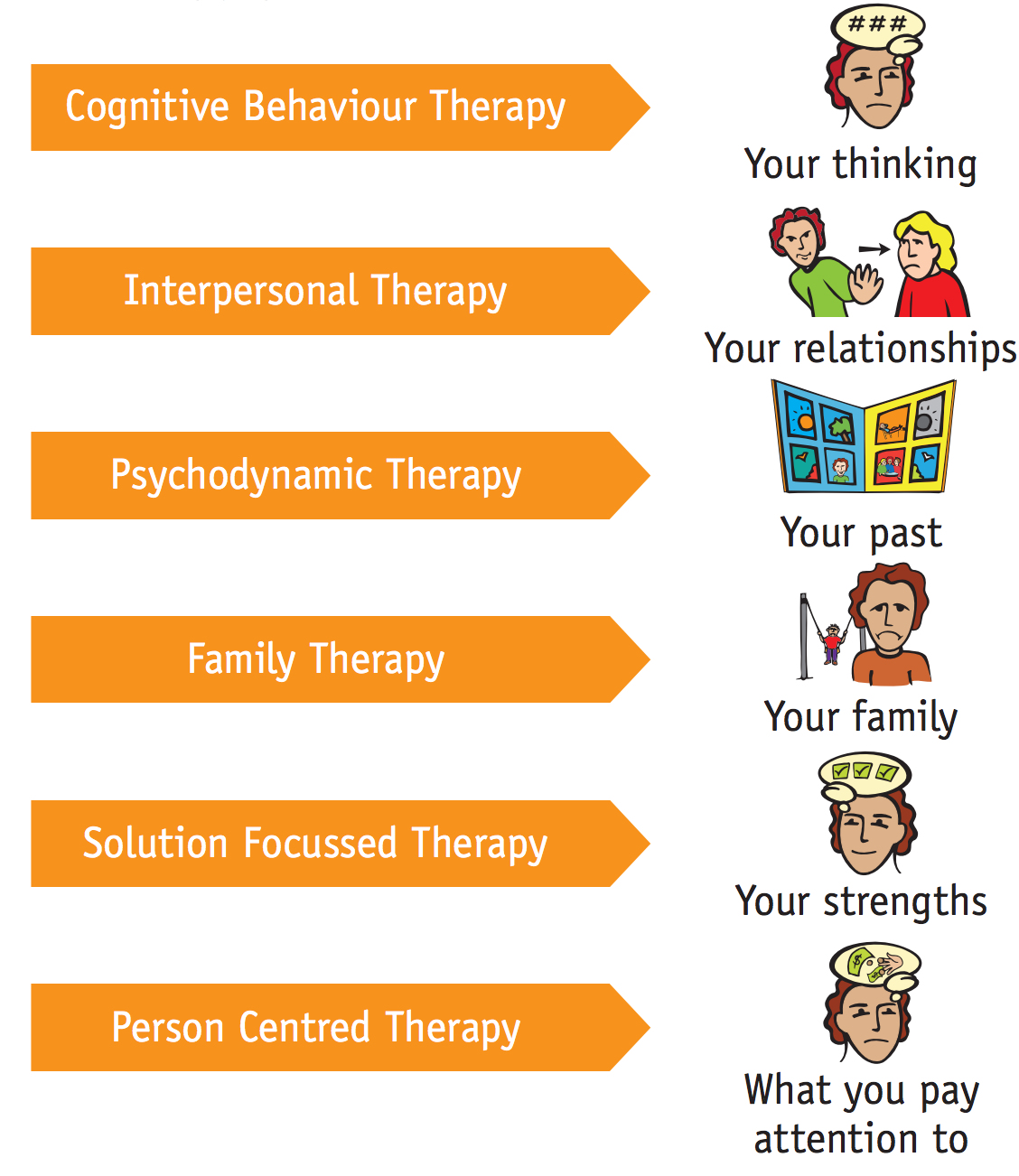virtual therapy online: Ways It Strengthens Continuity of Care
Wiki Article
Exploring the Advantages of Virtual Therapy in Modern Mental Healthcare
The surge of virtual therapy marks a substantial change in mental healthcare. It provides improved access, allowing people from diverse backgrounds to seek assistance without geographical restrictions. Versatility in scheduling suits differing way of lives, while the convenience of home can foster visibility. Nevertheless, the effects of these changes extend beyond mere benefit. The evolving landscape of therapy elevates vital concerns about its lasting results on patient engagement and therapy outcomes.Improved Availability for All
Although conventional therapy typically presents obstacles such as geographical area and scheduling problems, virtual therapy substantially enhances availability for individuals seeking mental health and wellness support. By eliminating the requirement for physical traveling, virtual therapy enables customers from remote locations or those with flexibility obstacles to attach with certified specialists. This mode of therapy can reach underserved populaces that might lack neighborhood psychological health sources, thus dealing with variations in accessibility to care. Additionally, virtual platforms can satisfy varied needs, supplying solutions in numerous languages and fitting numerous social backgrounds. Clients can involve with a more comprehensive variety of professionals, providing them with alternatives that straighten with their specific needs and preferences. This boosted accessibility promotes an extra comprehensive environment, allowing individuals to seek aid without the preconception typically related to in-person gos to. Overall, virtual therapy represents a considerable innovation in making psychological wellness treatment a lot more accessible to all.Flexibility in Organizing Sessions

As virtual therapy remains to acquire grip, its intrinsic versatility in scheduling sessions verifies to be a considerable advantage for lots of people. Unlike traditional in-person therapy, virtual therapy permits clients to pick session times that finest fit their individual and specialist dedications. This flexibility accommodates those with requiring work timetables, family responsibilities, or various other dedications that can make participating in physical visits challenging.
Moreover, clients can quickly reschedule or adjust their sessions as needed, lowering the anxiety related to inflexible appointment systems. The schedule of various time slots throughout the week, consisting of evenings and weekends, even more boosts availability. This adaptability not just encourages consistency in participation but also fosters a greater dedication to the therapeutic process. Eventually, the versatility in organizing sessions represents a transformative change in psychological healthcare, equipping individuals to prioritize their well-being without giving up other aspects of their lives.
Comfort of a Familiar Atmosphere
The convenience of an acquainted setting considerably improves the effectiveness of virtual therapy for several clients. Involving in therapy from the safety of their own homes allows individuals to really feel even more comfortable, reducing anxiety that might come with typical in-person sessions. This familiarity can promote open interaction, allowing customers to reveal their thoughts and feelings more easily.The presence of personal items and the capacity to regulate their surroundings can contribute to a feeling of safety and security and leisure. Clients often report that being in a comfortable room enables them to focus much more on the healing procedure rather than the setting itself.
Furthermore, the informal nature of virtual sessions can assist dissolve barriers that might exist in a conventional office environment, fostering a deeper connection with specialists. Overall, the convenience of acquainted environments plays a necessary role in improving the healing experience and effectiveness for several people looking for psychological health support.
Broader Variety Of Healing Choices
A broader series of therapeutic choices appears via virtual therapy, permitting clients to access numerous techniques that may not be viable in traditional settings. This adaptability enables people to check out diverse strategies such as cognitive-behavioral therapy, mindfulness methods, art therapy, and even specialized treatments like trauma-informed treatment or dialectical behavior therapy.Clients can choose from a wider range of therapists, consisting of those that specialize in niche areas or details populations, boosting the chance of finding an appropriate suit. Virtual systems frequently offer accessibility to team therapy sessions, assistance areas, and workshops that might be geographically inaccessible otherwise.
This range empowers customers to engage in their healing process according to their one-of-a-kind preferences and requirements, possibly enhancing inspiration and dedication to treatment. Consequently, the landscape of mental healthcare comes to be check this site out more comprehensive and versatile, dealing with a broader range of specific experiences and difficulties.
Decreased Stigma Surrounding Therapy
Accessing therapy with virtual platforms adds to a significant decrease in the stigma traditionally related to psychological healthcare. By providing a discreet and personal setting, virtual therapy permits people to seek help without the concern of being judged or recognized. This anonymity interest those who may otherwise wait to go after in-person therapy as a result of societal understandings surrounding mental health.As the occurrence of virtual therapy rises, it stabilizes the discussion around psychological health, making it a much more acceptable component of daily life. Individuals typically really feel much more comfortable discussing their experiences online, advertising openness and decreasing sensations of seclusion. The ease of access of these services likewise encourages a broader market to engage with mental health and wellness resources, cultivating a culture of support as opposed to pity. Ultimately, the rise of virtual therapy plays an important duty in improving mindsets towards looking for assistance, adding to a much more approving society pertaining to mental health challenges.
Cost-Effectiveness and Cost

Reduced Session Expenses
Numerous individuals looking for mental health and wellness support find that virtual therapy greatly reduces session prices compared to conventional in-person alternatives. The elimination of traveling expenditures and pause description job typically adds to total savings. In addition, lots of virtual specialists offer competitive prices because of reduced overhead prices connected with preserving a physical workplace. This change in expenditure allows customers to gain access to quality mental wellness solutions without the monetary pressure that might come with standard therapy. For numerous, this price enables much more frequent sessions, which can enhance treatment results. Consequently, virtual therapy not only democratizes accessibility to psychological health and wellness treatment however also provides a sustainable economic version that aligns with customers' budgets, making psychological health and wellness support extra possible for a wider target market.Increased Accessibility Options
While conventional therapy frequently provides logistical obstacles, virtual therapy considerably broadens accessibility options for people seeking mental health and wellness care. By removing the demand for traveling and enabling versatile organizing, virtual therapy accommodates varied way of livings and dedications. This access is especially useful for those in remote areas or with movement obstacles. Furthermore, the cost-effectiveness of virtual therapy minimizes economic pressure, making mental health and wellness solutions extra reachable. Many systems use tiered prices or sliding range charges, promoting affordability. Insurance business significantly acknowledge virtual therapy, more enhancing its monetary access. Generally, virtual therapy not only widens the scope of that can obtain care but also addresses financial obstacles, making psychological health support a lot more inclusive and possible for all.Enhanced Continuity of Care
Boosted continuity of treatment becomes a substantial advantage of virtual therapy in modern psychological healthcare. This method enables people to preserve constant interaction with their therapists, despite geographical barriers or scheduling conflicts. relationship therapy. The adaptability of virtual sessions promotes normal check-ins, which are vital for monitoring progression and adjusting treatment plans as necessaryAdditionally, digital health documents and telehealth systems facilitate smooth info sharing among treatment suppliers. This interconnectedness assures that all experts included in an individual's treatment are updated on therapy advancements, causing even more collaborated and efficient treatments.
Clients frequently experience decreased anxiety and increased engagement due to the ease of accessing therapy from acquainted settings. Such accessibility enhances adherence to therapy regimens, ultimately improving results - couples counselling. To summarize, virtual therapy not just bridges gaps in psychological health and wellness solutions yet also strengthens the connection of care, a critical element of effective restorative relationships
Often Asked Concerns
Exactly How Does Virtual Therapy Make Certain Confidentiality and Personal Privacy for Customers?
The present question addresses the measures virtual therapy employs to shield client privacy. Utilizing encrypted platforms, secure logins, and conformity with policies like HIPAA, virtual therapy warranties that delicate information remains private and unattainable to unapproved people.Can I Switch Therapists Quickly in Virtual Therapy?
Switching over therapists in virtual therapy is generally straightforward. Clients can interact their need for an adjustment through the platform, enabling versatility in finding a better match without the logistical challenges of in-person visits.What Technology Do I Required for Virtual Therapy Sessions?
To get involved in virtual therapy sessions, a private generally needs a reliable internet link, a computer or mobile phone with a cam his explanation and microphone, and access to a protected video clip conferencing system defined by their specialist.
Are Virtual Therapy Procedure as Effective as In-Person Procedure?
Recent studies suggest that virtual therapy sessions can be similarly reliable as in-person sessions, depending upon the individual's choices and circumstances. Elements such as convenience and ease of access might enhance the overall healing experience for some customers.What Should I Do if I Experience Technical Issues During a Session?
If technological problems occur throughout a session, one should steadly interact the problem to the specialist, effort to reconnect, or switch to a backup approach. Perseverance and adaptability are essential in managing these interruptions.Report this wiki page